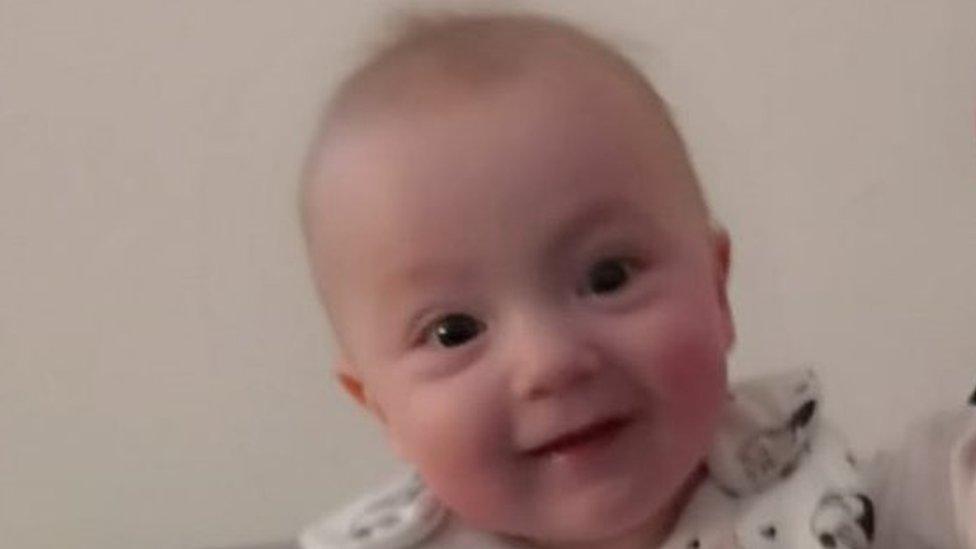Airdrie baby born at 22 weeks finally leaves hospital
- Published
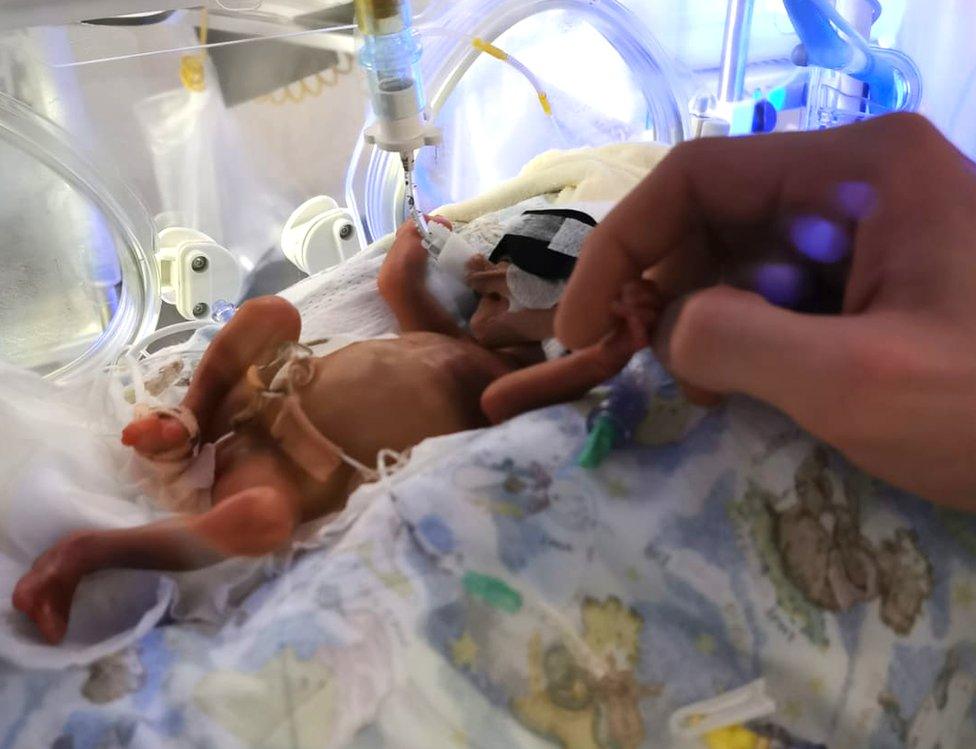
When Sofia was born she weighed just 500g (1.1lb) and could fit in her mother's hand
A baby who weighed no more than a loaf of bread and whose skin was transparent when she was born four months early, has finally been allowed to go home.
Believed to be one of Scotland's youngest surviving premature babies, Sofia Viktoria Birina was born at just 22 weeks and four days.
She was given a 10% chance of survival during labour and even less chance of surviving after that.
But she has now thrived enough to leave her special care baby unit.
Baby Sofia was due to enter the world on 1 February, but was born on 2 October. University Hospital Wishaw has been her home for more than four months.
Her mum Egija, dad Inars and baby Sofia finally went home on 10 February after what Egija described as 132 of the longest and scariest days of their lives.
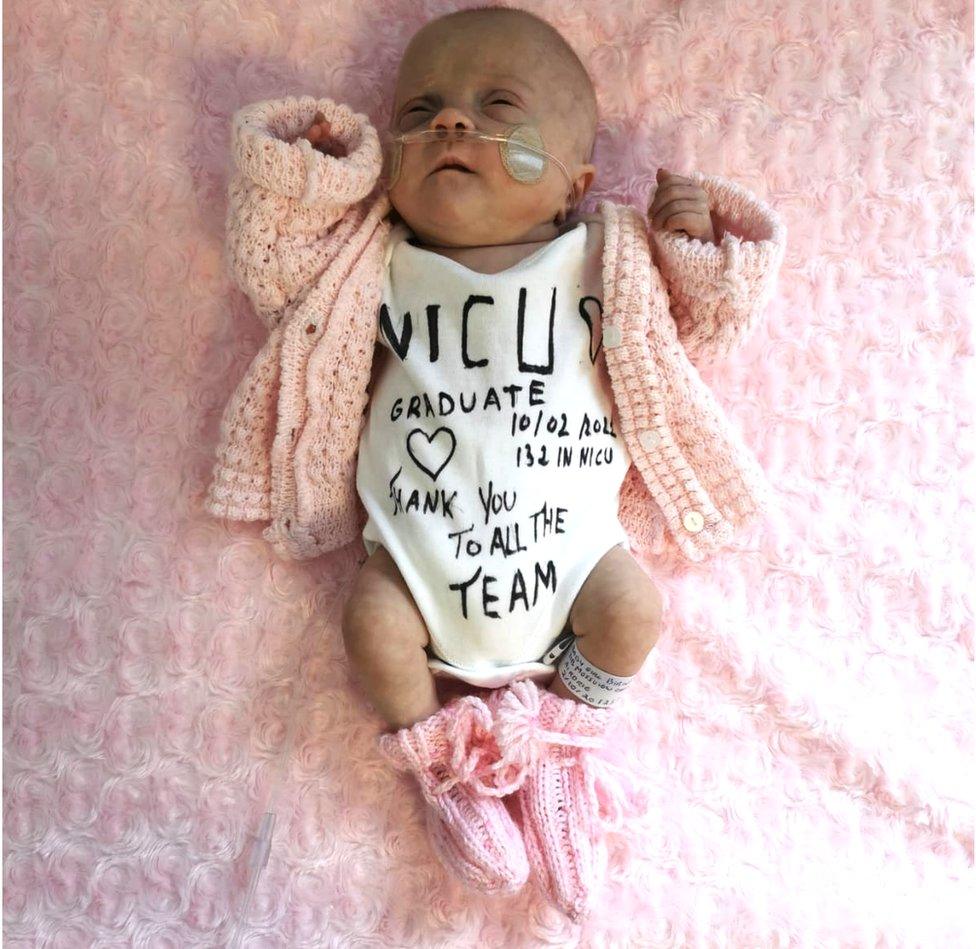
Sofia wore a tribute to her 132 days in the special care baby unit when she was allowed to go home
Egija is originally from Latvia but has been living in Airdrie, North Lanarkshire, for 12 years.
She said: "Everything was fine at the 20 week scan. Then just over a week later, I felt pain so I went into hospital and was told that I was already dilated and had to go into labour.
"After 10 days' bed rest our beloved daughter Sofia made an appearance. She arrived in the world with the biggest scream and was crying so much. We didn't expect she would survive but that's where our journey started."
Size of a hand
She weighed in at 500g (1.1lb) and at 26cm (10in), she was no bigger than a human hand.
Her first three months were spent in an incubator with her worried parents by her side.
Egija said: "Sofia was literally the size of a hand, so fragile and small and her skin was see-through. I had to wait a week to hold her for the first time because she was so fragile. Once I was able to hold her, they couldn't get her out of my hands."
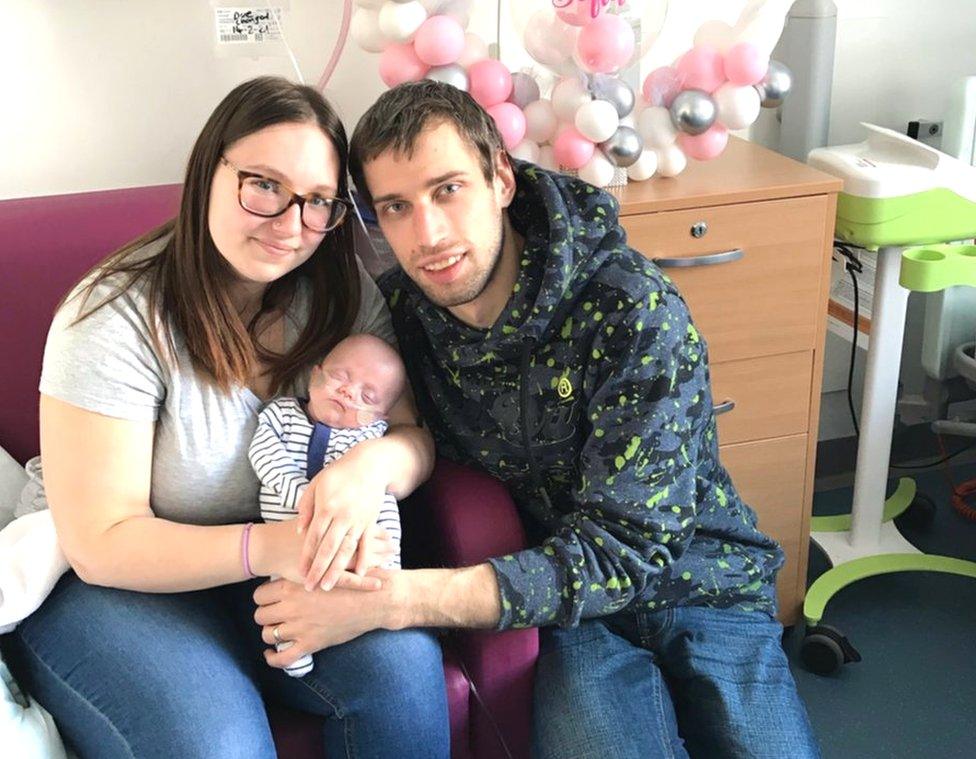
Her parents were finally able to take baby Sofia home after four months in hospital.
Sofia has overcome a heart defect, stage one brain bleeds, an eye disease, retinopathy of prematurity (ROP) and numerous infections.
She had seven blood transfusions and respiratory distress symptom as her lungs weren't fully developed.
This led to her being ventilated to help her breathe and even now she is home she has a little tube attached to give her extra oxygen.
Egija continued: "I was at the hospital all the time. Some days as long as 16 hours, and my husband would come after work. I just didn't want to leave her, especially on the many really tough days when we didn't think Sofia would make it.
"She was hooked up to lots of machines and she was ventilated for several weeks to help her breathe. First time they tried to get her to breathe on her own, she only lasted 20 minutes then her heart rate dropped and I felt like I was losing her - but the medical and nursing staff were great.
Beautiful smile
It took six attempts over many weeks to get Sofia to breathe without the ventilator. It was only during the last few weeks Sofia was strong enough to go in a cot as her weight and strength improved. Then it was finally time to go home.
Egija said: "Sofia has been doing great since we got home. She has the biggest and most beautiful smile on her face and is getting used to her new surroundings.
"She's now four months old and I look at her and think she could still be in my tummy because of how small she is, even though she is now four times her birth weight. "
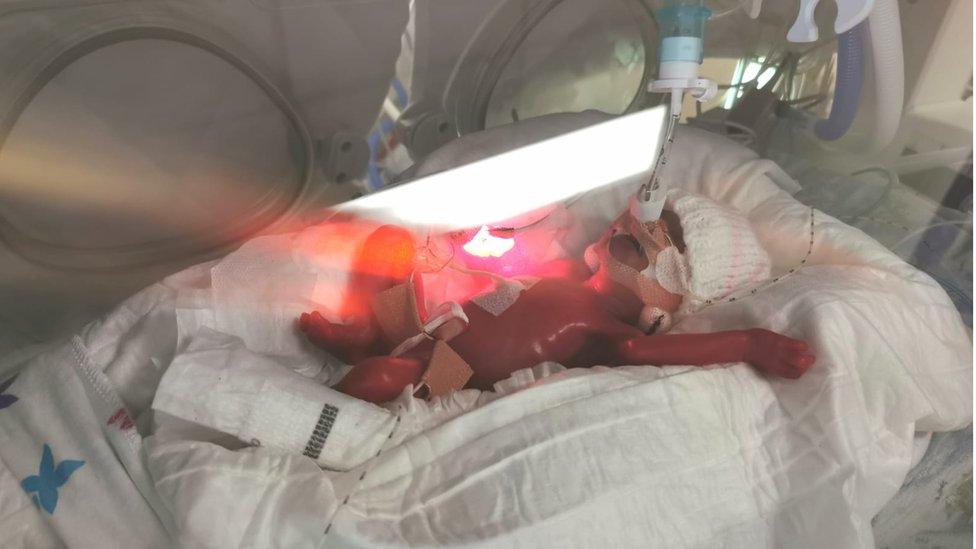
Sofia was in an incubator for three months
Sofia will have follow-up checks at the hospital for the first two years and she has to get check-ups at the lung clinic for three or four years but her development is moving in the right direction.
Egija said to other mothers-to-be: "To all other mummies going into such an early labour, there is hope. Never give up. "
Cheryl Clark, NHS Lanarkshire's chief midwife said: "Baby Sofia is such an inspiration and we are so happy she is now home with her family. On behalf of all the staff who have been involved in her care, I would like to wish Sofia and her parents all the best for their future together."
Related topics
- Published12 December 2020
